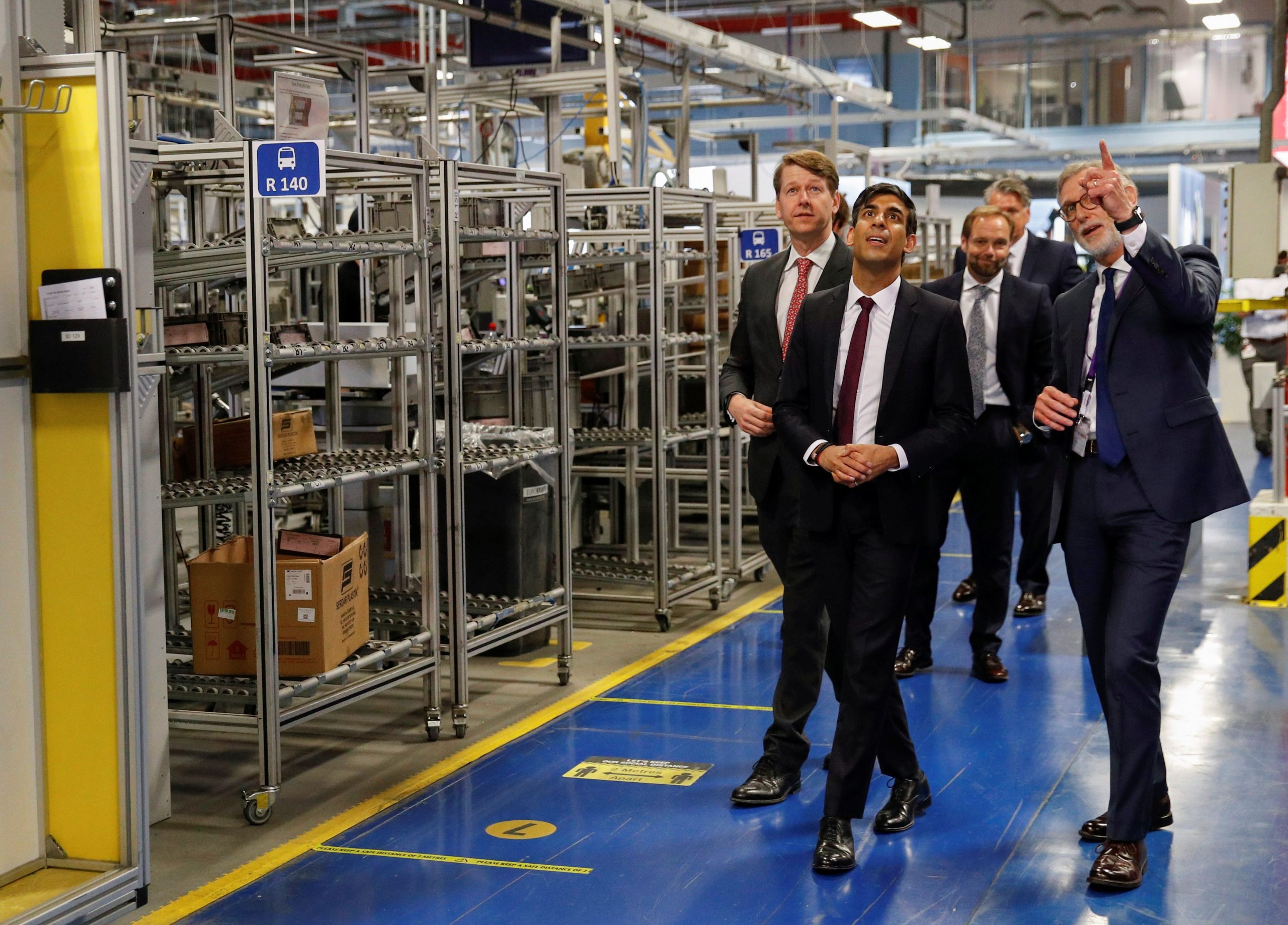
The pandemic has been hectic for Iron King, a Birmingham-based firm that makes gym equipment. The company, which mostly designs and builds equipment for commercial venues, saw those jobs dry up when the government ordered gyms to close in March. But sales through Iron King’s website started to pick up, much to the company’s surprise. “All of a sudden it was like the dam exploded,” says Henry Atkinson, who runs the firm. “We’re in a bit of a lucky position with gym equipment, everybody wants it.”
“If you would like to continue training at home during the Covid lockdown,” says the Iron King website, “we have the strength and conditioning equipment to make that possible.” The company uses a mix of big and small UK-based suppliers, so when the big steel companies and laser cutters closed under lockdown, Iron King could switch over to smaller firms whose staff could socially distance and stay open.
Gyms are due to reopen on 25 July, but when lockdown started and my local gym shut its doors, I joined an army of people ordering equipment online to keep fit under quarantine. I bought a couple of 8kg dumbbells, a skipping rope and some strength bands. A friend in New York bought a Peloton bike. Another in London got themselves a weight bench. Online purchases were accompanied by warnings to expect long delays as supply chains seized up from the impact of the pandemic. But that was not the story for all firms. Some manufacturers who built flexibility into their businesses saw the approach pay off during lockdown.
“We think of this situation being doom and gloom,” says Janet Godsell, professor of operations and supply chain strategy at Warwick University, “but there are actually some companies who have not run their supply chains so thin.” Godsell has seen firms able to respond, increase capacity and even overtake competitors that were less prepared.
Data shows manufacturing as a whole was hit hard in the pandemic. Research commissioned by the New Statesman this month found that three-quarters of businesses are planning to cut jobs. Among manufacturers, that rose to 81 percent. Data from the industry group Make UK, published in May, confirmed the challenges facing manufacturers with a quarter expected to shed jobs in the next six months. Airbus recently announced 1,700 job losses in the UK, part of 15,000 globally. Car manufacturers have warned that one in six UK jobs in the industry are at risk. Make UK is calling for a scheme to help redeploy workers who have lost their jobs to other companies able to take them on and retain their skills.
But one company that has seen its flex come in handy is Tata Consumer Products, one of the largest producers of tea in the world, part of the Indian multinational Tata Group. “Those manufacturers who have been able to flex their supply chain are the ones who have been able to keep products on shelf,” says John Burdett, global operations director. Tata Consumer Products regularly looks at its manufacturing network to assess how much spare capacity is needed to respond to fluctuations in demand, he says. The company had invested in flexibility prior to the pandemic, including being able to switch production over to different products and between factories.
[See also: 5G will transform manufacturing – despite coronavirus delays]
One might expect a global corporate to be in a better position to power through the crisis than a small gym equipment producer, but even large companies can take a hit if their supply chains are vulnerable. A company that has brought together manufacturing into a small number of factories to take advantage of economies of scale, for instance, is at risk if one of those locations cannot produce. The pandemic meant that, for some firms, business continuity plans were hamstrung because their back-up supply was also in lockdown or had seen a surge in demand. This meant they did not have any spare capacity. Burdett explains that manufacturers can “buffer” their supply chains either by having stock in place, or by ensuring they have the capacity to expand production or source from alternate suppliers. “Stock is temporary, but capacity is permanent,” he says.
The pandemic could lead to a resurgence of reshoring, where more UK companies move factories closer to the markets where they sell their products. Godsell says this requires better teamwork between government and decision-makers. “If we want to make the UK’s supply chains more resilient, we as a country need to think more strategically,” she says.
For Godsell that means flexible manufacturing capacity that can make many things and respond to needs. Early on, the sector certainly exhibited this ability. According to The Manufacturer, by the middle of April more than 120 manufacturers had turned over their production lines to help meet the demand for ventilators, hand sanitiser and personal protective equipment, or expanded production of other essentials.
When we spoke at the end of May, around eight weeks into lockdown, Henry Atkinson had just ordered five tons of steel to fill his orders. He was able to adjust what Iron King was making so it would fit in a garage or spare room rather than a gym, and had added a range of colours to meet the tastes of the stay-at-home gym devotee. “Every cloud has a silver lining,” he said, “and we’ve been lucky.”
[See also: Why manufacturing is key to post-pandemic recovery]



